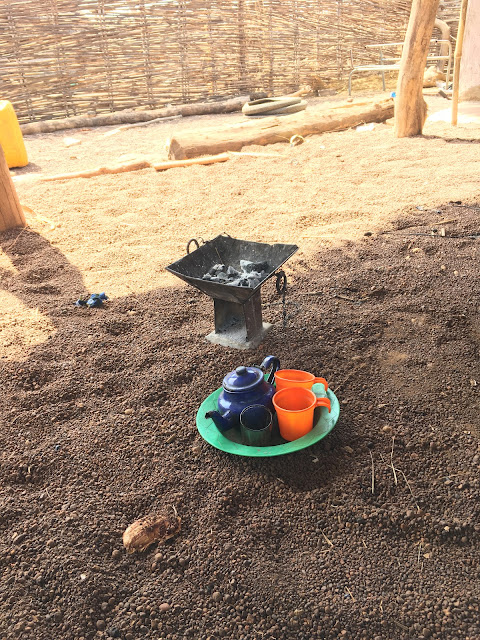Diakhanke (Jaxanke) Greetings and Phrases Part 1
Greetings are a very important part of Senegalese culture. They are the first sentences you say to anyone you see, no matter your relation to that person. If you do not greet someone, they will not be willing to answer any of your questions or help you. If you greet someone, they will generally be more than willing. This applies to family members, neighbors, boutique owners, people sitting in a restaurant you walked into, and everyone else. With someone you know well, greetings are usually longer. If you walk into a space with lots of people, a simple "Asalaam maalekum" will usually suffice.
I am breaking this post into two parts because there are a lot of potential greetings that one can use in any given interaction. Below are some of the most common greetings in my village. I have also uploaded some short conversations with people in my village so that you can listen. Not every greeting is on this list, but I'll try to cover most of the rest in Part 2 of this post.
I have also listed some common words, some of which do not appear in these greetings. Those words that do not appear in this post will probably be in Part 2.
Notes:
--"j" in most cases can be pronounced as an English "j" or an English "y"
--if a word ends in "n," this "n" is pronounced as a soft "ng"
--Some Arabic and French phrases/words are commonly used (such as "Asalaam maalekum")
Here is the link to the recordings of some conversations with people in my village:
https://drive.google.com/drive/folders/10TOPVWgaDqKHBqcDB_BUUSfejPOvuEsT?usp=sharing
I am breaking this post into two parts because there are a lot of potential greetings that one can use in any given interaction. Below are some of the most common greetings in my village. I have also uploaded some short conversations with people in my village so that you can listen. Not every greeting is on this list, but I'll try to cover most of the rest in Part 2 of this post.
I have also listed some common words, some of which do not appear in these greetings. Those words that do not appear in this post will probably be in Part 2.
Notes:
--"j" in most cases can be pronounced as an English "j" or an English "y"
--if a word ends in "n," this "n" is pronounced as a soft "ng"
--Some Arabic and French phrases/words are commonly used (such as "Asalaam maalekum")
Here is the link to the recordings of some conversations with people in my village:
https://drive.google.com/drive/folders/10TOPVWgaDqKHBqcDB_BUUSfejPOvuEsT?usp=sharing
 |
| Common Diakhanke Greetings |
 |
| Key |
 |
| Common Diakhanke words. They are vaguely grouped in relevant groups rather than alphabetized |


Comments
Post a Comment